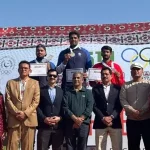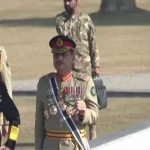ISLAMABAD: In contrast to the directives issued by it on Monday, officials from the Pakistan Electronic Media Regulatory Authority (Pemra) have acknowledged that orders to ban media coverage of three ‘banned’ organisations came from the ministry of information.
In a circular issued on Nov 2, Pemra had announced a blanket ban on coverage of “Jamaatud Dawa (JuD), Lashkar-e-Taiba (LeT) and Falah-i-Insaniat Foundation (FIF) under UN Resolution 1267”.
This also contradicts the claim Pemra made in Monday’s notification that the orders to do so were issued by the Ministries of Interior and Foreign Affairs. The interior ministry had already clarified that it issued no such orders in a statement released on Monday night.
Sources in the authority told Dawn that a letter directing Pemra to stop all coverage of the three organisations had been received from the information ministry.
Since acting Pemra chairman Kamaluddin Tipu, who is also the authority’s executive director, had returned from Hong Kong late on Saturday night, the letter was taken up on Monday.
“There was serious discussion over the matter because there had been no breach of Pemra’s Code of Conduct,” a Pemra official said on condition of anonymity.
The official added that the only clarification given by the information ministry was that the directives were in line with the joint communique issued by Prime Minister Nawaz Sharif and American President Barack Obama during the PM’s recent trip to Washington DC.
The communique stated: “The PM apprised the president about Pakistan’s resolve to take effective action against UN-designated terrorist individuals and entities, including LeT and its affiliates, as per its international commitments and obligations under UN Security Council resolutions.”
Pemra had also forwarded the official list of 72 groups that have been banned, either by the government of Pakistan or by the UN, but the directives issued specifically named the LeT, JuD and FIF, with no reference to other groups involved in terrorism and sectarian violence in Pakistan.
Neither the acting Pemra chief nor Information Minister Pervaiz Rasheed responded to requests for comment on why the coverage of just these three entities was being stopped.
Meanwhile, commenting on the Pemra directive, JuD spokesperson Mohammad Asif said that UN Resolution 1267 of 2008 had three segments, all highlighting four persons: Hafiz Saeed, Zakiur Rehman Lakhvi, Mehmood Bahaziq (who is a Saudi national) and Haji Ashraf, who had already died around two years ago.
“The [stipulations of the] UN Resolution are that these persons cannot travel abroad, their personal bank accounts will be sealed and they are not allowed access to weapons,” Mr Asif said, adding that all these requirements were being fulfilled, but there was nothing about curbs on movement or speech within the state.
“The FIF is conducting welfare operations in earthquake-hit areas and providing food to around 3,000 people every day — shouldn’t the media cover that when they visit these areas,” he asked, rhetorically.





